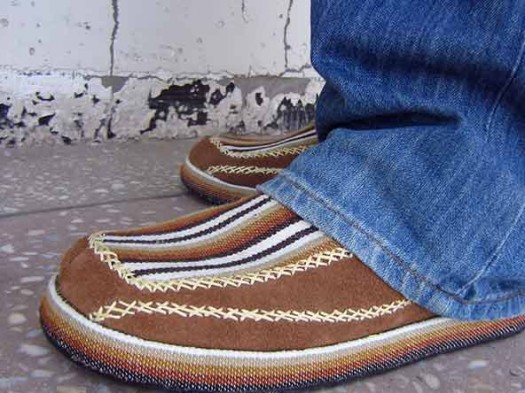
Writing for The Root, TheBurtonWire.com’s Editor-in-Chief Nsenga K. Burton, Ph.D. offers some examples of six groups that are working to make products that help challenged communities help themselves. If you’re in the market for gifts that actually give back, check out the excerpt below:
EXCERPT
(The Root) — The holiday season is in full effect. Yuletide cheer in the form of cards and decorations began appearing in stores in October, as if Americans needed reminders that Christmas was nearly two months away. Shops are full, and people are searching for the best online reviews for a range of different products such as leesa vs casper to ensure we buy our loved ones the best products.
For some, the meaning of Christmas has gotten lost in the heavy focus on the gift giving and the perceived lack of focus on celebrating the birth of Christ. ” ‘Tis the season to be jolly” has been replaced with ” ‘Tis the season to make money,” with the buzz of commercialism ringing so loudly that it often drowns out the classic holiday songs piped through the stores, music that many remember as the soundtrack to wonderful holiday gatherings, yet stokes the desire to buy more and more. Signs of recessions fade to the back as folks literally step over one another in a race to get that mass-produced or one-of-a-kind item that will put a smile on the face of someone special — even if you will frown when your credit card bill arrives next month.
If I seem slightly “Grinchy,” I am. Although I love the holiday season, I struggle with the commercialism that is aimed squarely at helping to stimulate the economy while decreasing our bank accounts and increasing credit card debt exponentially. So I decided that instead of being a Scrooge, I would find stores that actually give back to the communities that create their wares.
With help from a group of students from Goucher’s Peace Studies Program, I came up with a list of businesses that have the goal of giving back. If you notice that obvious choices like Toms, Bobs by Skechers and Product Red are missing from the list, it is because, through research, we have found that sometimes good intentions go awry.
While Toms and Bobs intend to help provide shoes for folks who don’t have them with their initiative to “buy-a-pair, give-a-pair” to someone in need, they often hurt local economies by taking away business from producers of shoes who actually live in the community, increasing the cycle of poverty. Product Red doesn’t have that problem but suffers from what the Economist refers to as the “ineluctable middleman,” in which the amount of money raised by the initiative, although in the millions, is a fraction of what is spent on the marketing, production and distribution.
For example, in 2007 an estimated $100 million was spent in advertising and marketing for Product Red, but it raised only $18 million for the Global Fund to Fight AIDS, Tuberculosis and Malaria according to National Debt Relief. I’m not saying not to buy a Product Red Gap T-shirt, especially if you’re already shopping there, but know that proceeds from your purchase may not make it to the Global Fund.
If it really is the thought that counts, here are some businesses you might think about patronizing during this holiday season. If these businesses don’t interest you, then think about spending money with small businesses and entrepreneurs in your community. Seasons greetings!
Esperanza en Acción
You’ve heard the phrase “fair trade”? How about comercio justo? Esperanza en Acción was founded in 2002 to encourage fair trade by helping artisans in Nicaragua find fair markets for their work. Esperanza en Acción works with artisans living in poverty, whether they are organized in cooperatives or collectives or work in their homes with their families.
Esperanza also provides social- and economic-justice education both in Nicaragua and through its Economic Justice Education Center and Fair Trade shop. The artisans make beautiful handmade pottery, pine-needle baskets, bamboo baskets, stone carvings, paintings, weavings, jewelry, cards, animal whistles and more.
SoleRebels
Founded by Bethlehem Tilahun Alemu in Addis Ababa, Ethiopia, SoleRebels is the world’s only certified World Fair Trade Organization footwear company. Alemu looks at creating footwear as a means of creating hope, borrowing from the traditional “selate” and “barabasso” shoes — for which the soles are made from recycled tires — that have long been a tradition in Ethiopia.
SoleRebels provides jobs to the community, pays wages that are four times the minimum wage and three times the industry standard, uses sustainable materials that lower the company’s carbon footprint and incorporates artisanal practices and designs, thereby preserving Ethiopian culture. Did I mention the Artisan Education fund, which funds the education of participating artisans’ children and/or the children of close relatives? Artisans can access the fund twice a year. SoleRebels is building hope and communities one foot at a time.
The Woman’s Industrial Exchange
Established in Baltimore shortly after the Civil War, the Woman’s Industrial Exchange emerged as part of a nationwide exchange movement to help women in need discreetly earn a living. The organization has changed hands over the nearly century and a half that it has been in existence, becoming a boardinghouse and tearoom. The one thing that has remained constant is the exchange room, where initially women and now men can sell handmade and handcrafted wares to support themselves. It offers free gift wrapping and ships anywhere in the U.S.
Read the article in its entirety at TheRoot.com.
Like The Burton Wire on Facebook. Follow us on Twitter @TheBurtonWire.